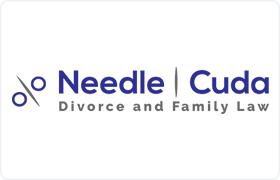 Harwinton Adoption Lawyers, Connecticut
Harwinton Adoption Lawyers, Connecticut
Sponsored Law Firm
-
 x
x

Click For More Info:
-
Needle | Cuda: Divorce & Family Law
830 Post Road East Suite 301 Westport, CT 06880» view mapDivorce & Family Law Experienced. Savvy. Straightforward.
At Needle | Cuda, we know when you come to see us that you may be going through the most difficult time of your life. That is why we style ourselves a “high touch” law firm.
203-557-9500
Lawyers
1-5 of 5 matches
Family Law, Child Support, Administrative Law, Adoption, Employment
Divorce & Family Law, Adoption, Real Estate, Personal Injury
Divorce & Family Law, Mediation, Divorce, Adoption
Business Organization, Adoption, Alimony & Spousal Support, Corporate



 Melissa Needle Westport, CT
Melissa Needle Westport, CT Practice AreasExpertise
Practice AreasExpertise